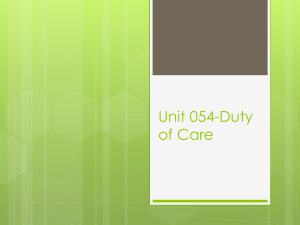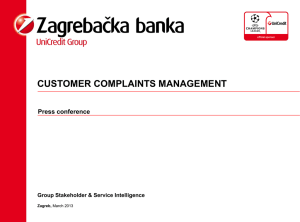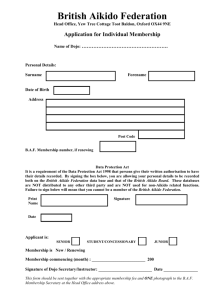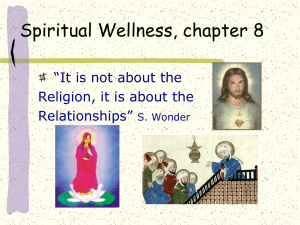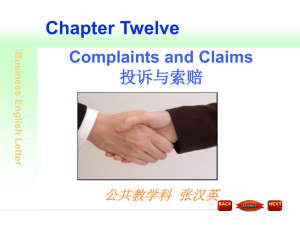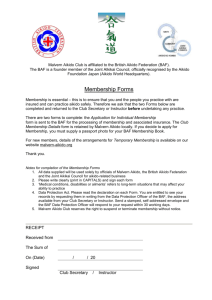Beyond WOW Complaint Resolution
advertisement
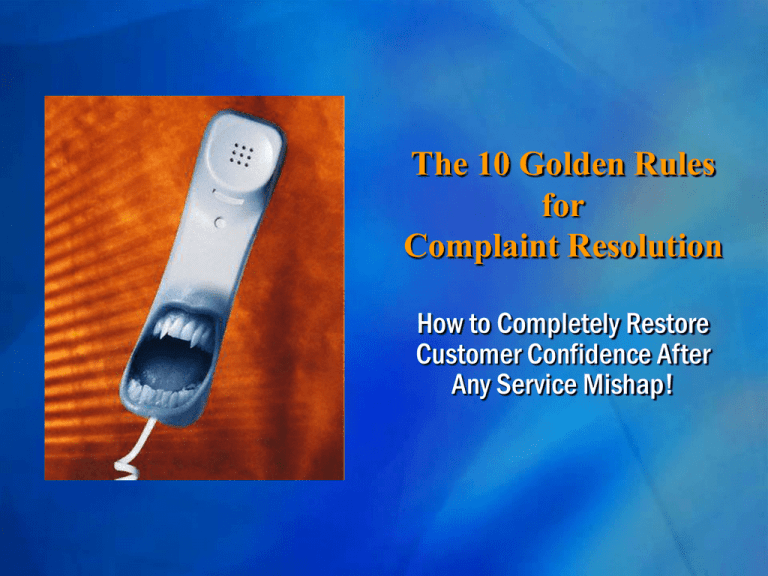
The 10 Golden Rules for Complaint Resolution How to Completely Restore Customer Confidence After Any Service Mishap! Agenda Communication skills for dealing with unhappy customers 10 Golden Rules for Complaint Resolution The psychology of anger Tips, tactics, & techniques for dealing with difficult customers The Bottom Line Benefit of Complaints 1. Give companies a second chance The Bottom Line Benefit of Complaints 2. Provide opportunity to correct problems The Bottom Line Benefit of Complaints 3. Complainants are 10% more likely to repurchase— even if problem is not resolved The Bottom Line Benefit of Complaints 4. 95% of complaining customers remain loyal How Many of Your Unhappy Customers Will Remain Loyal? 95% 82% 70% 54% 46% 37% 19% 9% Complaint Resolved Quickly Complaint Resolved Complaint No Not Complaint resolved Source: TARP, Inc. The Bottom Line Benefit of Complaints 5. Most unhappy customers don’t complain The Bottom Line Benefit of Complaints 6. Increases sales The Bottom Line Benefit of Complaints 7. Generates positive word-of-mouth advertising 5 If service was outstanding 11 If expectations weren’t met 17 If there was a problem and that problem was immediately resolved The Bottom Line Benefit of Complaints 8. Decreases acquisition costs The Bottom Line Benefit of Complaints 9. Reduces problem occurrence and customer dissatisfaction Top 10 Customer Expectations 1. Being called back when promised. 2. Receiving an explanation of how a problem happened. 3. Knowing who to contact with a problem. 4. Being contacted promptly when a problem is resolved. 5. Being allowed to speak to someone in authority. Top 10 Customer Expectations 6. Being told how long it will take to resolve a problem. 7. Being given useful alternatives if a problem can’t be solved. 8. Being treated like a person, not an account number. 9. Being told about ways to prevent a future problem. 10. Being given progress reports if a problem cannot be immediately resolved. Customer Customer Company Customer Problem Company Conveying To Customers You Are On The Same Side Listen with the intent to understand Avoid the tendency to interrupt Listening With The Intent To Understand Builds trust and rapport Diffuses anger Expedites problem resolution Increases satisfaction Increases our chances of retaining customers Half Of All Complaining Customers Never Get An Apology A sincere apology can: Create calm Diffuse anger Re-establish trust Expedite solution finding SORRY WORKS! “Please accept my sincere and unreserved apology for any inconvenience this may have caused you.” The Golden Rules 1. Express appreciation 2. Show empathy 3. Apologize 4. Have a sense of urgency 5. Ask for the necessary information The Golden Rules 6. Assure the customer 7. Tell the customer what you’re going to do 8. Solve the problem 9. Ask, “Have I resolved this to your satisfaction?” 10. Investigate the problem and work to cut it at its root The Psychology of Anger 1. Anger precludes rationality 2. Anger must be acknowledged 3. Anger diffusion can reduce the cost of recovery 4. The issue is not the issue 5. Ventilation is crucial Handling a Problem That Was Caused By the Customer 1. Never tell a customer they are wrong. 2. Realize you can’t win an argument with a customer. 3. Begin in a friendly way. 4. Get a “yes, yes” response. 7 Steps for Addressing Unacceptable Behavior 1. State the facts. 2. Interpret the facts, giving the benefit of the doubt. 3. State your feelings. 4. Validate the relationship. 7 Steps for Addressing Unacceptable Behavior 5. Say, “Help me understand.” 6. Request behavior change. 7. Ask, “What do you think?” Saying ‘No” Without Causing Resentment Understanding Situation Action Diffusing Anger With Aikido An Aikodoist strategically calms down the attack. Aikido never meets force with force. Aikido emphasizes quick, decisive movements to use the attacker’s force against him. Diffusing Anger With Aikido Aikidoists blend with their opponent’s energy. Aikido students learn to turn with their opponent’s force. In Aikido, all opponents are considered “partners”. START STOP CONTINUE
